,
BIG TITLE
A CALL FROM GOD OR TO PLEASE POPULAR CULTURE?
Christian Body “Mutual submission in the fear of the Lord ”
Apostle Paul to the First Church Ephesians 5:21
PONDERING: 5 FOLD OFFICE “FUNCTIONS” OR ELABORATE “TITLES??
(C)2025 Taveau D’Arcy All copyrights reserved under international copyright laws, in conjunction with AI

REAL LIFE: Chief Identity In Christ? Or In the Ministry Office?
Since the early 1990’s and Christian media:
“Mama always told me that I was “gifted” and “anointed” so I figured that I would ” sign up” and become an Apostle” (Pastor, Prophet, Arch Bishop, World Wide Evangelist). The Dysfunctional USA
Next Level: “Following that, I’ll go get my business cards, rent me a building, hang out my shingle and file for my 501c3 to be nonprofit, (Media Age Now “get me my podcast, social media” )

TD REMARKS: WHAT FIRST INSPIRED THIS APOSTOLIC RESEARCH “TITLES” “MINISTRY AUTHORITY”
Sister Taveau noted how Paul used “lower case letters” when he talked about himself as “an apostle’ in Galatians 1:1-2 and how he used ONLY “lower case letters” when he wrote about each one of the First Church 5 fold apostolic ministry offices. (pastor, prophet, apostle, evangelist, but also bishop and deacon)
Again, whenever Paul wrote about the five fold office ministry “”titles’ in Ephesians 4:11, Paul writes (KJV):
“And he gave some, apostles; and some, prophets; and some, evangelists; and some, pastors and teachers;”
All are in lowercase, including when Paul mentions other roles like bishop (Greek: episkopos) and deacon (diakonos) elsewhere.
Dr Taveau asks ChatGPT AI:
What does this lowercase usage convey?
It replies:
1. Function, not Title
Paul was describing functions or roles, not titles or ranks. He emphasized what the person does, not how they are exalted. For Paul, these were callings, not career ladders.
2. Servanthood, not hierarchy
Lowercase formatting reflects the servant nature of true ministry:
-
“Let the greatest among you be your servant” (Matthew 23:11).
-
Paul often introduces himself as “Paul, a servant of Jesus Christ” (Romans 1:1), before even saying “apostle.”
3. Early Church humility
In the First Church, humility and functionality were key. There were no clerical robes, celebrity platforms, or name placards — just anointed service.
4. No formalized office system (yet)
In Paul’s time, the church was organic, house-based, Spirit-led. Offices were emerging by gifting, not yet by institutional structure. So they weren’t yet seen as fixed or hierarchical positions.
Compare that to today:
Now we often see:
-
“Apostle So-and-So”
-
“Bishop Dr. ___”
-
“Prophetess ___”
With capital letters, business cards, and even branding. But Paul’s lowercase tone shows:These roles were tools, not titles of entitlement. 
Next we’ll define “function” vs “title” as understood in the First (Early) Church, then explore how and when the Church shifted from function-based leadership to title-driven hierarchy.
1. First Church: Function vs Title – Definitions in Biblical Terms
FUNCTION (Greek idea: ergon = work, service, ministry)
-
A function is what you do — your spiritual assignment or calling.
-
Given by God, not man.
-
Verified by fruit, not by status or appointment.
-
Servant-minded, fluid, Spirit-led.
-
Seen in people like Stephen, Philip, Priscilla, Aquila — people functioning in real ministry before they ever received a title (if at all).
Example: Paul was already functioning as an apostle before he was recognized as one (Galatians 1:1; Acts 13:2-3).
He was “called,” not self-titled.

JOB 41 “The Leviathan Chapter”
TITLE (Greek idea: tithēmi = to appoint, place; or timē = honor/status)
-
A title is a label of position or rank.
-
Assigned by people or institutions.
-
Can be used without function (i.e., people can hold the title but not walk in the grace).
-
Tends to become hierarchical, formal, and political over time.
-
Jesus warned against title obsession:
“Call no man Rabbi… for one is your Master… and all ye are brethren.” (Matthew 23:8-10)
No Big I’s, Title Worship or self, person “idolatry”
ONLY JESUS CHRIST IS EXALTED.
Note how this reveals GOD’S HEART for equality and function over spiritual rank.
2. First Church: Function-Based Leadership (Acts–1st Century)
In the Book of Acts and the epistles:
-
The church was led by people called by the Holy Spirit, not promoted by men.
-
Leadership was organic, house-to-house, deeply relational.
-
Prophets and teachers fasted and prayed, and then the Holy Spirit said, “Separate unto me Paul and Barnabas…” (Acts 13:2).
-
No one called themselves “Chief Apostle” or “Senior Prophet” — they functioned, and the fruit proved the office.
-
No robes, cathedrals, or positional prestige — only servanthood.

WITH FIRST CHURCH EXPANSION ALL OF THIS STARTS TO OCCUR AND DRIVES ORGANIC SERVANT LEADER APOSTLES OUT
3. When Did the Shift Begin? From Function to Title
The shift began gradually, as the early church grew in size, influence, and political visibility.
A. Post-Apostolic Era (AD 100–300)
-
After the original apostles died, the church began to formalize leadership to combat heresy and keep unity.
-
Roles like bishop (episkopos) became territorial overseers.
-
Ignatius of Antioch (c. 110 AD) was among the first to emphasize the office of bishop as distinct and higher than elders and deacons.
-
Church leaders began being addressed with honorifics like “Father” and “Your Grace.”
This was a move to preserve order — but it also laid the groundwork for clerical hierarchy.
B. Constantine and the Imperial Church (AD 313 onward)
-
When Emperor Constantine legalized Christianity (Edict of Milan, 313 AD), the Church gained government approval and power.
-
Christianity became institutionalized.
-
Church leaders began dressing like Roman officials.
-
Titles became tied to political rank:
-
Bishop of Rome became “Pope.”
-
Bishops ruled geographic regions (dioceses).
-
Clergy were elevated above laity.
-
Function was no longer enough — one had to be formally installed, approved by hierarchy, and often politically connected.

NOTICE BELOW THE EFFECTS OF THE WORLD ENTERING INTO THE “CHURCH”
C. Medieval Church (AD 500–1500)
-
Titles dominated: Cardinal, Archbishop, Vicar, Father, Pope, Reverend.
-
Laypeople were seen as spiritually inferior.
-
The Bible was restricted to clergy.
-
The fivefold ministry nearly disappeared — especially apostles and prophets, who were viewed with suspicion or labeled heretics.
This was a massive departure from the early Acts model of Spirit-led, humble, functional ministry.

HOW THE FIRST CHURCH VIEWED THE FIVE FOLD MINISTRY OFFICES
— not as titles, but by their function and authority:
First Church View of Offices — Function, Not Titles
-
Offices are Roles of Service and Function, Not Status
In the First Church (New Testament), offices like apostles, prophets, elders (bishops), and deacons were understood primarily as functional roles within the Body of Christ, each with specific duties and responsibilities. -
Authority Was Functional and Relational, Not Hierarchical Titles
Authority came from the function and calling given by the Holy Spirit and the community’s recognition, not from holding a prestigious title. For example, an elder’s (bishop’s) authority was to shepherd and care for the church (1 Timothy 3, Titus 1), not to lord over others. -
Mutual Submission Was Key
Ephesians 5:21 says, “Submitting yourselves one to another in the fear of God.” This meant all offices worked together with mutual respect, accountability, and humility—not a rigid chain of command. -
Offices Were Gifted Functions for Edification
Paul in Ephesians 4:11-12 explains the offices as gifts “for the perfecting of the saints, for the work of the ministry, for the edifying of the body of Christ.” Their function was to serve, equip, and build up the church. -
No Spiritual ‘Covering’ or Overlords
Unlike some modern models where titles imply spiritual covering or authority over others, the First Church model showed that spiritual authority was exercised carefully and always accountable to Christ and the community. -
Example: Apostles
Apostles functioned as sent messengers and church planters with authority in establishing doctrine and order but remained servants of Christ, not rulers over others.
Summary in KJV Style
“For the offices in the church were given for service and edifying, not for dominion or pride; but that each might fulfill his God-given function, working together in mutual love and submission.” — (Paraphrase based on Ephesians 4:11-12, Ephesians 5:21, 1 Timothy 3)

4. Summary Table: Function vs Title Over Time
| Era | Function-Focused | Title-Focused |
|---|---|---|
| Acts Church (30–100 AD) | Yes – Spirit-led | No |
| Post-Apostolic (100–300 AD) | Partial | Growing |
| Imperial Church (300–500 AD) | Minority | Strong |
| Medieval Church (500–1500 AD) | Suppressed | Dominant |
| Reformation (1500+) | Restored teaching | Mixed |
| Modern Church | Some movements restore function | Many still title-heavy |
TD SPEAKS: The more abuse of titled ministry (not servant leader) but elevated “elite” more autcratic and hierarchy, self conscious, status worried .. the more area accusing targeting, backbiting “gatekeeping”
PAUL’S FIVE- FOLD MINISTRY OFFICES
Ephesians 4:11 — Function vs Title
“And He gave some, apostles, and some, prophets, and some, evangelists, and some, pastors and teachers…”
(Ephesians 4:11, KJV — all lowercase)
Why does Paul use lowercase — and what does it show?
I. Greek Word Study: Meaning Before Magnitude
Let’s break down the Greek:
-
ἀπόστολος (apostolos) = sent one, a messenger.
** From apo- (from) + stellō (I send) — literally a person sent with a mission, not a title of grandeur. -
προφήτης (prophētēs) = one who speaks forth, declares divine insight.
** From pro- (before or in front) + phēmi (I speak). Not fortune-teller — a truth announcer. -
εὐαγγελιστής (euangelistēs) = bringer of good news, a gospel herald.
** From eu- (good) + angelos (messenger). A communicator of salvation, not a media brand. -
ποιμήν (poimēn) = shepherd, not CEO.
** Poimēn was used for literal shepherds — guiding sheep, not controlling them. -
διδάσκαλος (didaskalos) = teacher, one who imparts, explains.
** From didaskō (to teach). Relational, not performative. -
Paul is describing spiritual functions, not status markers. These are servant roles — lowercase in attitude and eternal purpose.
II. What Paul Did Not Do:
-
He did not capitalize “Apostle Paul” in tone or content.
-
He never opened letters with “The Honorable Bishop Paul, Presiding Apostle over Asia Minor.”
-
He called himself:
-
“Paul, a servant” (doulos = slave/bondservant)
-
“The least of the apostles” (1 Cor. 15:9)
-
“Less than the least of all saints” (Eph. 3:8)
-

The Ephesians 4 Offices
-
Ephesians 4:11 lists five offices:
-
Apostles
-
Prophets
-
Evangelists
-
Pastors
-
Teachers
-
-
The word “bishop” (episkopos) is not listed separately here.
Instead, the terms “bishop” (overseer) and “elder” (presbyter) often overlap in the New Testament, describing the same functional role — elders who oversee and shepherd the church (Acts 20:17, 28; 1 Peter 5:1-2). -
Paul’s list focuses on function, not rank:
The five offices are seen as functions given by Christ “to prepare God’s people for works of service” (Eph 4:12), all equally important parts of one body. -
“Bishop” and “Deacon” are offices of service in local church leadership, not higher rank:
These terms appear in the Pastoral Epistles (1 Timothy 3, Titus 1) describing local church leadership roles responsible for care and management, again emphasizing function and character, not formal titles or rank. -
Paul’s emphasis is on unity and mutual submission:
All these offices exist to build up the church in love and unity (Eph 4:13-16), not to create hierarchy or spiritual overlords.
Summary:
-
The five-fold ministry (apostle, prophet, evangelist, pastor, teacher) are gifted functions for equipping and edification.
-
The terms bishop/elder describe local church leadership roles focused on shepherding and oversight.
-
Offices were functional, servant roles, never meant to be status titles or rigid hierarchies.
-
Offices are Roles of Service and Function, Not Status
In the First Church (New Testament), offices like apostles, prophets, elders (bishops), and deacons were understood primarily as functional roles within the Body of Christ, each with specific duties and responsibilities. -
Authority Was Functional and Relational, Not Hierarchical Titles
Authority came from the function and calling given by the Holy Spirit and the community’s recognition, not from holding a prestigious title. For example, an elder’s (bishop’s) authority was to shepherd and care for the church (1 Timothy 3, Titus 1), not to lord over others. -
Mutual Submission Was Key
Ephesians 5:21 says, “Submitting yourselves one to another in the fear of God.” This meant all offices worked together with mutual respect, accountability, and humility—not a rigid chain of command. -
Offices Were Gifted Functions for Edification
Paul in Ephesians 4:11-12 explains the offices as gifts “for the perfecting of the saints, for the work of the ministry, for the edifying of the body of Christ.” Their function was to serve, equip, and build up the church. -
No Spiritual ‘Covering’ or Overlords
Unlike some modern models where titles imply spiritual covering or authority over others, the First Church model showed that spiritual authority was exercised carefully and always accountable to Christ and the community. -
Example: Apostles
Apostles functioned as sent messengers and church planters with authority in establishing doctrine and order but remained servants of Christ, not rulers over others.Paul did not list bishops separately among the five-fold ministry because their function was more local and pastoral, not foundational like apostles or prophets.
-

AGAIN: First Church View of Offices — Function, Not Titles
-
Offices are Roles of Service and Function, Not Status
In the First Church (New Testament), offices like apostles, prophets, elders (bishops), and deacons were understood primarily as functional roles within the Body of Christ, each with specific duties and responsibilities. -
Authority Was Functional and Relational, Not Hierarchical Titles
Authority came from the function and calling given by the Holy Spirit and the community’s recognition, not from holding a prestigious title. For example, an elder’s (bishop’s) authority was to shepherd and care for the church (1 Timothy 3, Titus 1), not to lord over others. -
Mutual Submission Was Key
Ephesians 5:21 says, “Submitting yourselves one to another in the fear of God.” This meant all offices worked together with mutual respect, accountability, and humility—not a rigid chain of command. -
Offices Were Gifted Functions for Edification
Paul in Ephesians 4:11-12 explains the offices as gifts “for the perfecting of the saints, for the work of the ministry, for the edifying of the body of Christ.” Their function was to serve, equip, and build up the church. -
No Spiritual ‘Covering’ or Overlords
Unlike some modern models where titles imply spiritual covering or authority over others, the First Church model showed that spiritual authority was exercised carefully and always accountable to Christ and the community. -
Example: Apostles
Apostles functioned as sent messengers and church planters with authority in establishing doctrine and order but remained servants of Christ, not rulers over others.
Summary in KJV Style
“For the offices in the church were given for service and edifying, not for dominion or pride; but that each might fulfil his God-given function, working together in mutual love and submission.” — (Paraphrase based on Ephesians 4:11-12, Ephesians 5:21, 1 Timothy 3)

Today’s Church: Titles as Identity and Power
THE CALL FROM GOD OR TO PLEASE POPULAR CULTURE?
The Shift:
Many modern churches use titles as branding:
-
“Archbishop”
-
“Chief Prophetess”
-
“Apostle-Elect”
-
“Doctor-Prophet-Pastor”
And often, it’s followed by:
-
Logo
-
Robes
-
Media intros
-
Hierarchical structures with CEO-style governance and paid “armor-bearers.”
MAIN POINT: The Problem: Identity Has Shifted
In modern usage, the title becomes the person’s identity, not the calling. But in Scripture, the calling flowed from relationship with Christ and service to the people.
Paul didn’t say, “Call me Apostle.” He proved he was one by enduring suffering, persecution, and spiritual labor (2 Cor. 11:23-28).
POINT: Key Warning from Jesus
“Be not ye called Rabbi: for one is your Master, even Christ; and all ye are brethren.”
(Matthew 23:8-10)
Jesus warned against using spiritual titles as a badge of superiority. His words challenge the modern need to be called:
-
“Father”
-
“Master”
-
“Leader” (Greek: kathegetēs = guide/instructor)
Today, that warning is still burning : “Don’t climb above your brethren.”

First Church: Flat Leadership, Spirit-Led Body
In the early church:
-
There were elders (presbuteroi) and overseers (episkopoi), but not lords.
-
Authority was based on anointing and fruit, not charisma or image.
-
Function was proven through service and suffering, not platforms or press kits.
Paul’s Model vs. the Modern “Platform”
| Paul’s Pattern (Ephesians) | Modern Church Culture |
|---|---|
| Lowercase roles | Capitalized titles |
| Servanthood | Hierarchy |
| Sent by Christ | Self-proclaimed/marketed |
| Proof through fruit | Proof through followers |
| Flat body (1 Cor. 12) | Celebrity pyramid |
| House churches | Production-stage ministry |
 To Support: please pray
To Support: please pray
To Support through Giving:
(C)2025 Taveau D’Arcy All copyrights reserved under international copyright laws, in conjunction with AI





















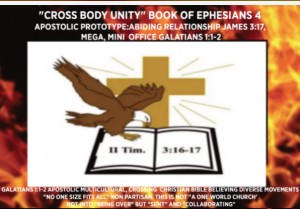




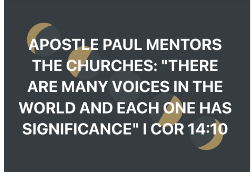

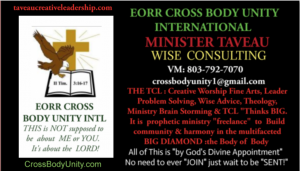



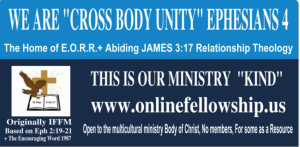


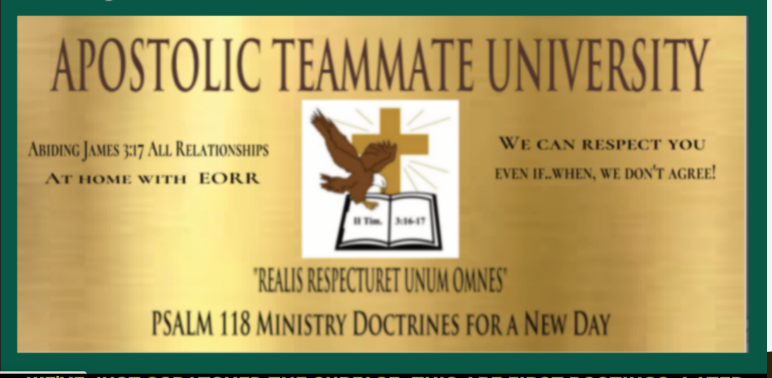
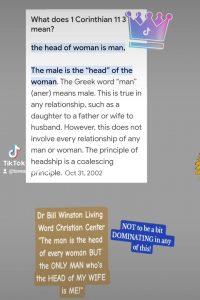

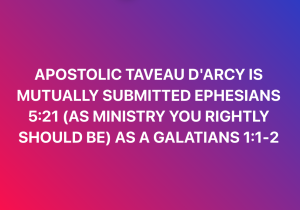



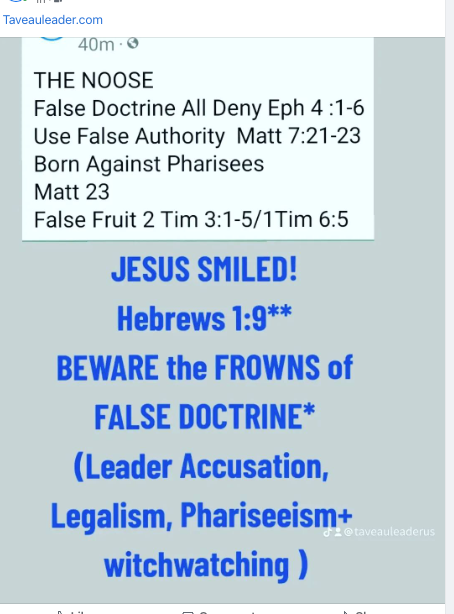

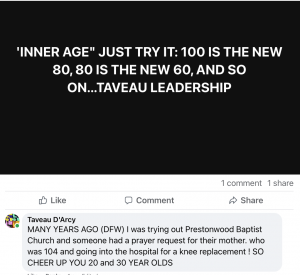
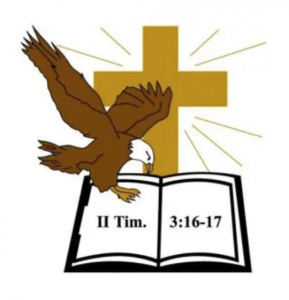



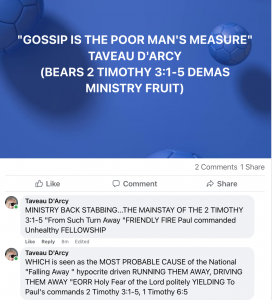

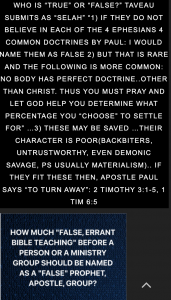

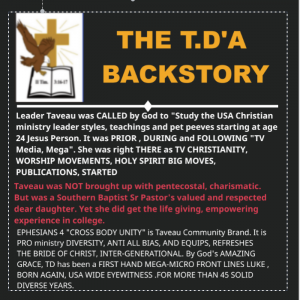



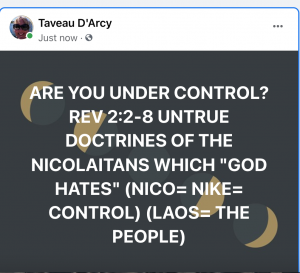
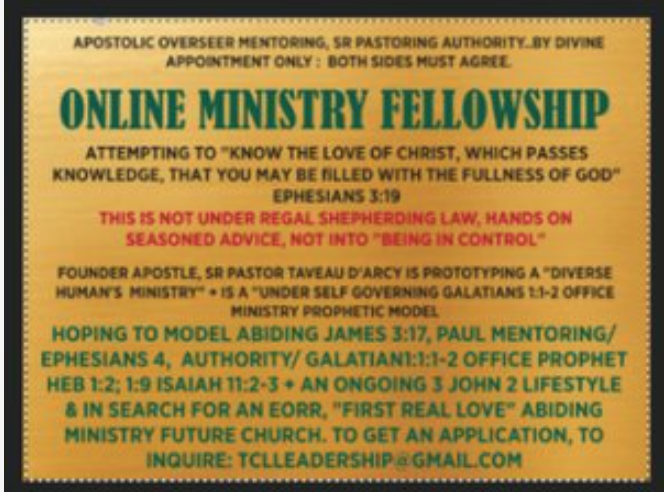














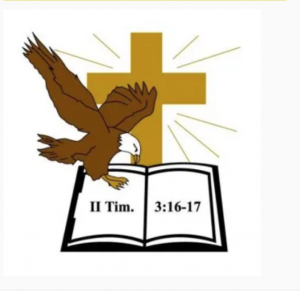
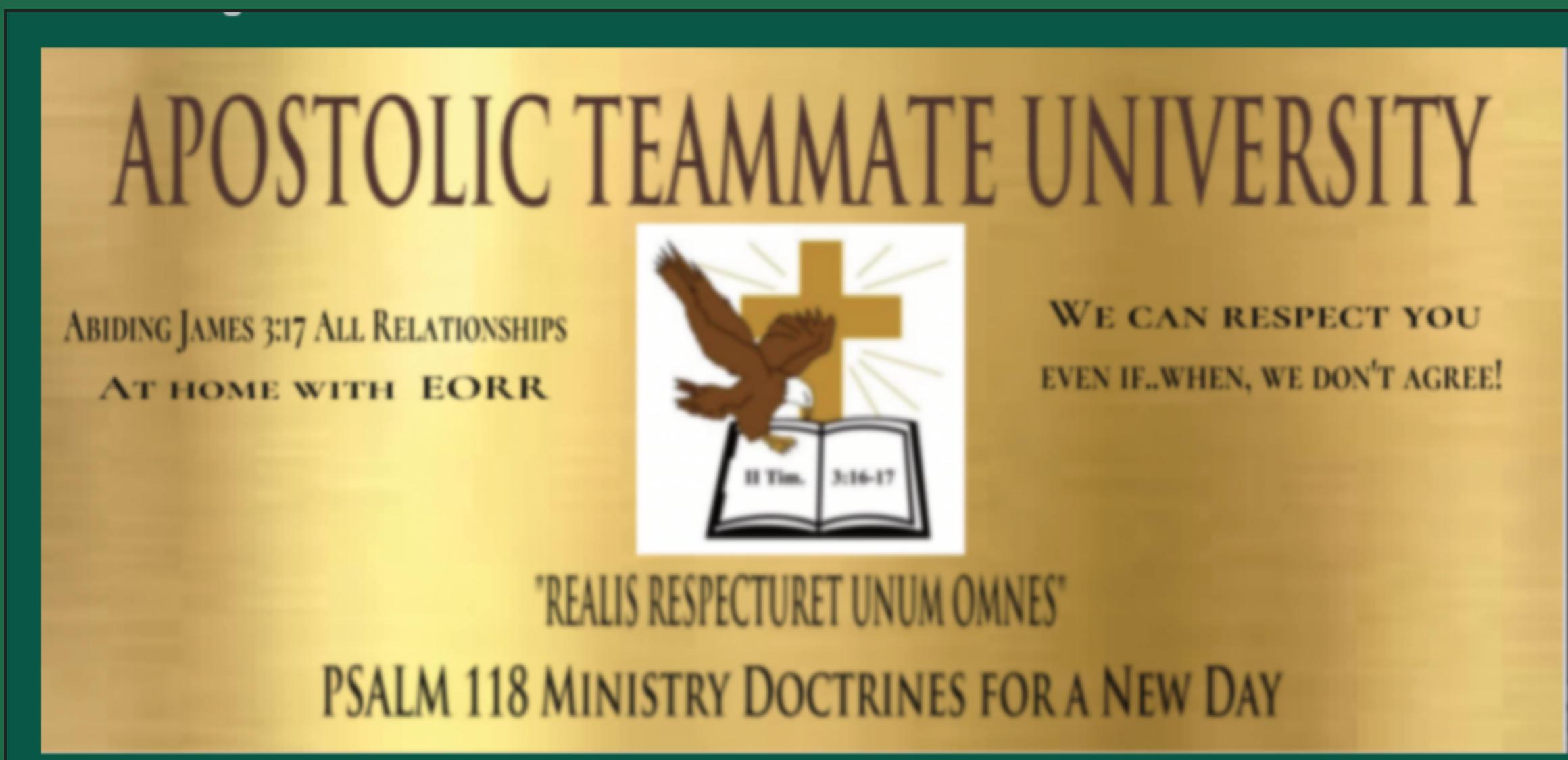


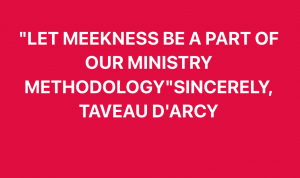













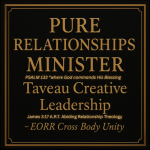







Recent Comments